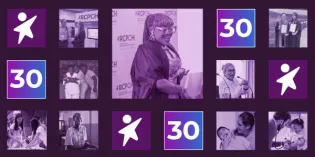A paper has now been published in Archives of Disease in Childhood. A link to the abstract can be found below. In addition a webinar has now been produced outlining some of the findings from the study which can be viewed below.
Lead investigator
Dr Robert Tulloh
Dept of Paediatric Cardiology
University Hospitals of Bristol NHS Foundation Trust
Upper Maudlin Street
Bristol BS2 8BJ
Email: robert.tulloh@uhbristol.nhs.uk
About the study
Overview
Kawasaki disease is the most common cause of acquired heart disease in children in the UK and USA. The serious effects resulting from Kawasaki disease make it important to diagnose this condition early, in order to treat it effectively and therefore minimise complications and long term ill-health within the paediatric population. The last British Paediatric Surveillance Unit (BPSU) survey of kawasaki was in 1990 and since that time there has been increased awareness of the condition and treatment protocols.
You can download the protocol card, including references, below.
Webinar and publications
Professor Robert Tulloh and Professor Paul Brogan led a webinar, Time to 'think Kawasaki disease' in April 2019:
Published papers
- RMR Tulloh, R Mayon-White, A Harnden, et al, 'Kawasaki disease: a prospective population survey in the UK and Ireland from 2013 to 2015', Archives of Disease in Childhood Published Online First: 13 August 2018. doi: 10.1136/archdischild-2018-315087
Statement by Societi: The UK Kawasaki Disease Foundation on PIMS
Societi Foundation's Scientific Advisory Board have released on a statement on paediatric inflammatory multi-system syndrome, Kawasaki Disease and Covid-19.
Case definition
Any infant or child up to the age of 16 years presenting for the first time with fever of five or more days duration plus four of the following (complete) or plus any two of the following and coronary artery changes (atypical) or plus two or three of the following (incomplete):
- Conjunctivitis - Bilateral, bulbar, non-suppurative
- Lymphadenopathy - Cervical > 1.5cm
- Rash - Widespread, polymorphous. Not vesicular.
- Lips and mucosa - Red cracked lips, ‘strawberry tongue’, erythematous oral cavity
- Changes of extremities - Erythema, oedema of palms and soles initially, then peeling of skin at later stage.
Exclusion
None. (No longer are we excluding streptococcal infections).
Duration
February 2014 –February 2015 (13 months of surveillance).
Funding
Kawasaki Disease parent support group.
Approval
This study has been approved by NRES Committee – South West – (REC reference 11/SW/0310) and has been granted Section 251 permission under reference: ECC 6-02 (FT11)/2012.
Support group







